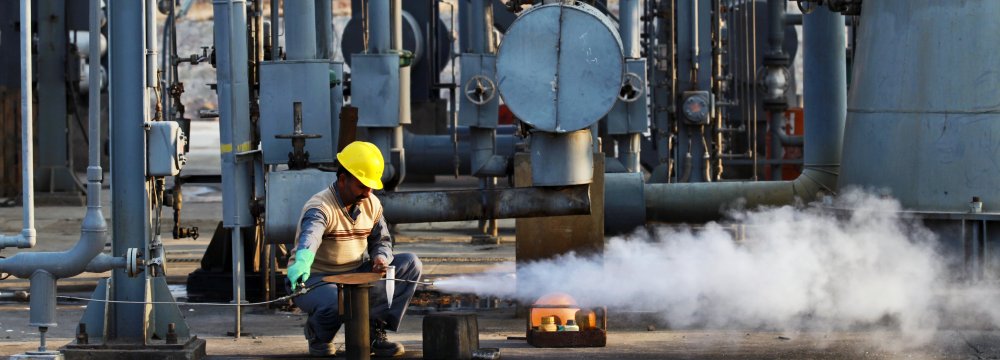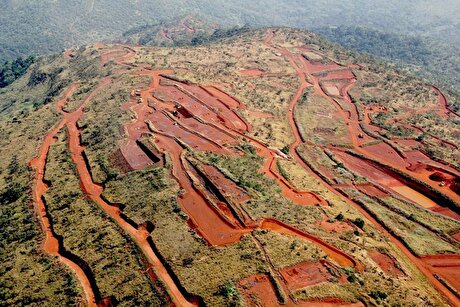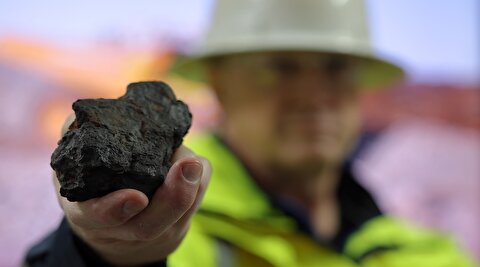
Pakistan to Offer Gas Fields to Foreign Investors


Much of the mineral-rich South Asian nation remains unexplored despite gas discoveries dating back to the 1950s, Reuters reported.
Conventional gas reserves are estimated at 566 billion cubic meters and shale gas reserves, which are untouched, at more than 283 bcm.
Italy’s ENI and US oil major Exxon Mobil are jointly drilling for gas offshore in Pakistan’s Arabian Sea, but many western companies have not returned after leaving more than a decade ago because of Islamist militant violence.
Nadeem Babar, head of Prime Minister Imran Khan’s Task Force on Energy Reforms, told Reuters the government was amending its natural gas regulation and drawing up its first-ever shale gas policy, with licensing rounds to follow later this year.
The government hopes improving security in recent years and the country’s extensive pipeline network will attract investors.
More than 30 onshore gas blocks have been identified and the government plans to auction a large chunk of them in one or two licensing rounds by the end of 2019, Babar said in his office in the capital Islamabad.
“I expect in the second half of this year we will be auctioning at least 10, if not 20 blocks for exploration.”
Pakistan’s domestic gas output has plateaued in the last five years, falling to 56 bcm in 2017/18, from 63 bcm in 2012-13, according to an annual report from the petroleum ministry.
This has led to severe gas shortages as Pakistan’s population, now at 208 million people, has risen sharply over the same period, driving fuel demand from industries and new power plants higher.
Gas demand was estimated at 198 bcm per day for 2017-18, according to Pakistan’s Oil & Gas Regulatory Authority, nearly 84 bcm more than daily output.


Gold price edges up as market awaits Fed minutes, Powell speech

Glencore trader who led ill-fated battery recycling push to exit

Emirates Global Aluminium unit to exit Guinea after mine seized

UBS lifts 2026 gold forecasts on US macro risks

Iron ore price dips on China blast furnace cuts, US trade restrictions

Roshel, Swebor partner to produce ballistic-grade steel in Canada

US hikes steel, aluminum tariffs on imported wind turbines, cranes, railcars

EverMetal launches US-based critical metals recycling platform

Afghanistan says China seeks its participation in Belt and Road Initiative

First Quantum drops plan to sell stakes in Zambia copper mines

Ivanhoe advances Kamoa dewatering plan, plans forecasts

Texas factory gives Chinese copper firm an edge in tariff war

Pan American locks in $2.1B takeover of MAG Silver

Iron ore prices hit one-week high after fatal incident halts Rio Tinto’s Simandou project

US adds copper, potash, silicon in critical minerals list shake-up

Barrick’s Reko Diq in line for $410M ADB backing

Gold price gains 1% as Powell gives dovish signal

Electra converts debt, launches $30M raise to jumpstart stalled cobalt refinery

Gold boom drives rising costs for Aussie producers

First Quantum drops plan to sell stakes in Zambia copper mines

Ivanhoe advances Kamoa dewatering plan, plans forecasts

Texas factory gives Chinese copper firm an edge in tariff war

Pan American locks in $2.1B takeover of MAG Silver

Iron ore prices hit one-week high after fatal incident halts Rio Tinto’s Simandou project

US adds copper, potash, silicon in critical minerals list shake-up

Barrick’s Reko Diq in line for $410M ADB backing

Gold price gains 1% as Powell gives dovish signal

Electra converts debt, launches $30M raise to jumpstart stalled cobalt refinery

















